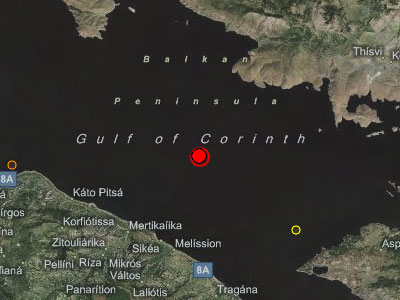Everybody imagines Greece as being a sun and sand destination with Greek islands the only place to head to. Indeed, I have shared an Insiders Guide to the Greek islands to help you choose. But off season travel in Greece should also not be missed.
There will be some affiliate links in it that mean if you choose to purchase anything, I will receive a small amount of commission.
If you choose to visit Greece at the start of the year, you’ll come across a weather phenomenon referred to as Alkyonides. But what do I mean by Alkyonides days?
Alkyonides Days weather phenomenon – Why visit Greece in the winter
It’s thought that Greece has over 250 days a year of sunshine with mild temperatures throughout (but the winters can get a bit chilly).
Every year, about January & February, temperatures can reach up to 20 degrees Celsius. This phenomenon is often shortened to simply “Alkyonides.” Sitting in cafes drinking coffee, people will remark on the high temperatures; “Ahhhh, Alkyonides” accompanied with a knowing nod. In fact, sitting having coffee in a cafe is exactly where I first heard this term.

The Mythology of Alykonides
Alcyone was the devoted wife of Ceyx, King of the Thessaly region in central Greece. He ruled his kingdom as a fair man and both he and his wife were admired by gods and mortals alike, both for their physical beauty and deep love.

“What’s this got to do with unseasonably warm days in February in Greece?” one might ask. Read on…
Visit Greece in winter – Alkyonides Islands
The waves rushed into the rocks and destroyed Alcyone’s nest and eggs, hence Zeus ordered the winds to stop and the sun to shine for fifteen days in the heart of the winter for Alcyone to safely lay her eggs.
There are some small rocky islands in the Corinthian Gulf, very close to Athens and named after these mythological daughters. Every year, birds can be seen flocking to these islands, usually a few days before the weather heats up. The witness of these birds flocking to the Alkyonides Islands usually indicates a spell of warmer weather…the islands are particularly warm. Could Zeus have created these islands as a safe haven from the original rocks?

So there you have it. Even the weather in Greece can stem from mythology – and it’s worth visiting Greece in the winter/beginning of any year where, as you’ve seen, for a certain amount of days and for an interesting reason, the weather can reach 20 degrees Celcius. This is the myth of the Alkyonides Days in Greece, and why the country is a great off peak destination, weather ise.
Did you know about the Alkyonides Days and islands? Have you experienced winter in Greece in January/February and felt the weather is unseasonably warm? Global warming? Yes – but it’s also nice to think of the myth too.
PIN for later



Oh, Bex, what a lovely subject!!! And quite romantic from my point of view since, if you don’t mind, I’ll mention another related myth, that I was brought up with: Alkyoni, the daughter of Aiolos the god of winds, was married to Kyix and the two were utterly in love and happy. They lived by the sea and lived of it. On a winter’s day Kyix decided to go fishing but the weather was getting worse by the minute. Alkyoni stood by the sea calling him but as he turned the boat around to reach her, the waves overcame the boat and he drowned. Alkyoni in utter despair, though she was pregnant, through herself over the cliffs and drowned too. Zeus seeing such love and despair, decided to save them by transforming them to sea-birds (the birds that hold their names respectively) so that their love could live on forever. Moreover, he decided to allow a few days of good weather in the heart of winter so that Alkyoni would give birth (lay her eggs now that she was a bird) on the island rocks. So from then on every year around the appointed time when alkyones come to lay their eggs on the islands that you’ve mentioned, the weather always welcomes them and allows them to hatch their eggs…(of course now we know that the birds come because of the few days of good weather but what’s life without a little romance..? 😉 )
Oh Nancy! You brought a tear to my eye, literally! I love how there is a story behind most things in Greece – and yours is lovely too. Thanks so much for sharing…it’s truly beautiful, as I’m sure my readers will also agree :0)
Hi Bex,
Thanks for your explanations as regards this strange weather phenomenon! A colleague of mine from Greece came into the cold London Office today and remarked it had been Alkyonides days in Greece. He gave me a brief explanation – but I had to check on the web and so found your post. I do indeed think its all very romantic. Typical greek? (-;
Ole
Thanks Ole – glad I could be of assistance :0) I actually wrote this post last year – this year Alkyonides has come in Jan and it’s been anything between 16 and 19 degrees C in the daytime!